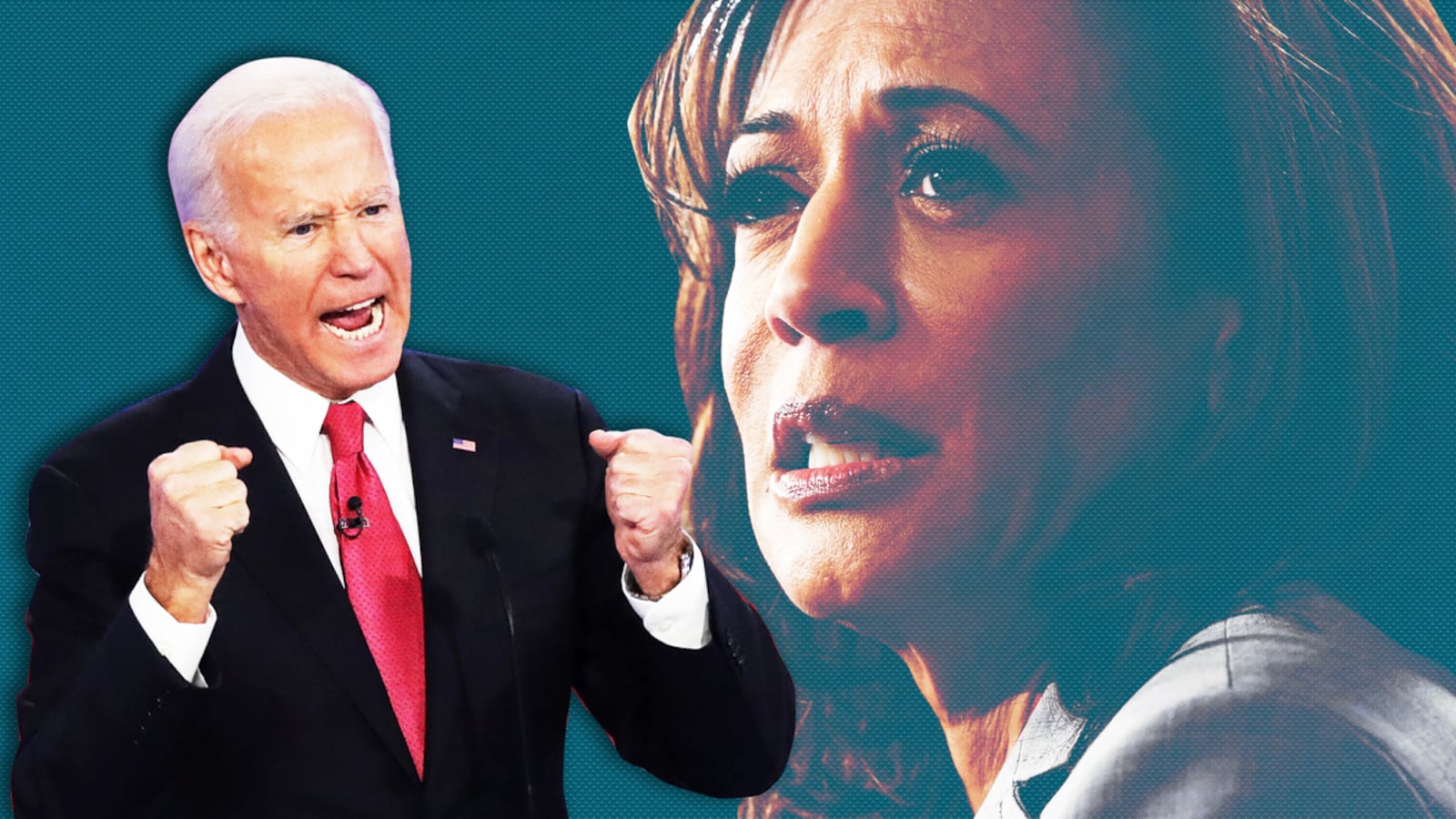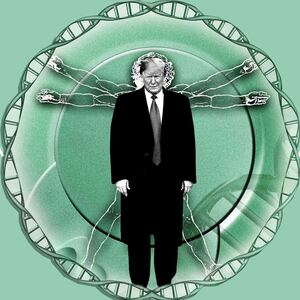The most memorable moment of Wednesday night’s primary debate almost certainly came when the Democratic Party’s nominal frontrunner briefly forgot that one of his fellow candidates existed.
Joe Biden’s assertion that he had been endorsed by the lone black woman to have served in the United States Senate was quickly (and correctly) challenged by the second woman to have held that honor—Kamala Harris—who stood feet away from him on the stage. But in a matter of seconds the former VP had not just reminded voters of his penchant for verbal—if not mental—fumbles, but also re-illustrated the remarkably unsettled nature of the primary in general.
Three months out from voting, there is no actual frontrunner in the field. There is no general theme or issue around which the primary is being fought. And there is no real sense of what issues are going to animate primary voters aside, of course, from their animus toward the current occupant of the Oval Office.
If folks were hoping that the fifth Democratic debate in Atlanta would help add some clarity to those matters, they were surely left a bit disappointed. A two-plus hour affair touched on a wide array of topics, featured a rotating cast of characters, and witnessed a few seemingly out-of-the-blue fights between those on the stage. It was not without its breakout moments, testy exchanges, and awkward stumbles—many courtesy of Biden.
In an aggressive back-and-forth between the only veterans standing on the debate stage on Wednesday, South Bend Mayor Pete Buttigieg and Rep. Tulsi Gabbard (D-HI) jabbed each other over the latter’s willingness to meet with Syrian dictator Bashar al-Assad, an exchange prompted by what Buttigieg characterized as Gabbard taking comments about military cooperation with Mexico out of context.
“Do you seriously think anyone on this stage is talking about invading Mexico?” Buttigieg asked Gabbard, before hammering the Hawaii congresswoman for her willingness to meet with a leader who has gassed his own people.
“If you want to talk about experience, let’s talk about judgment,” Buttigieg said. “I have enough judgment that I would not have sat down with a murderous dictator.”
Not every give-and-take between rivals for the nomination was so clean—particularly a three-way debate between Biden, Harris, and Cory Booker (D-NJ) that ended with Biden, the author of the original Violence Against Women Act, an issue he has campaigned on, talking about the need to keep “punching at it” (pausing for his famous “I really mean it” when the audience laughed nervously at the poor choice of words) to end the issue of domestic violence.
But it was the larger themes—not the individual vignettes from the evening—that seemed to define the evening, perhaps ominously so for those Democrats eager to avoid a bloody, drawn-out primary. A crowded field remains crowded and there is no clear end point for it to narrow. Indeed, the contrast from the fifth Democratic debate, held at Tyler Perry Studios, and nearly every debate from 2008 and 2016 is unmistakable. At this point 11 years ago, the focus was on Barack Obama against Hillary Clinton, with a touch of John Edwards and everyone else, including Biden, on the sidelines. In 2016, it was all Clinton versus Sen. Bernie Sanders (I-VT).
For months, Democrats have seen flashes of frontrunners get the circular firing squad treatment in the four previous debates held in major cities. After surging to the head of several early state polls, the odds were on Buttigieg to have a tough go of it in Atlanta. But well into the first 90 minutes of the debate, the attacks on the 37-year-old mayor were tepid or non-existent. In fact, unlike previous debates, no one seemed to occupy the role of human pinata.
Instead, his problems as a candidate were addressed in a more civil tone by Harris, who turned the critique around to emphasize her own strengths.
When asked what prompted Harris to say recently that the Democratic nominee must have “the diversity of the American people,” the California senator said she was answering a question about a stock photo Buttigieg’s campaign erroneously published and later apologized for that featured a woman from Kenya to illustrate his plan to end racial injustice in the United States.
“The larger issue is that for too long I think candidates have taken for granted the constituencies that have been the backbone of the Democratic Party and they show up when it's, you know, close to election time and show up in a black church and want to get the vote but just haven't been there before,” Harris said. “There are plenty of people who applauded black women for the success of the 2018 election. Applauded black women for the election of a senator from Alabama. But, you know, at some point folks get tired of just saying oh, thank me for showing up and say, well, show up for me,” she added, referencing the need to re-create the Obama coalition of diverse supporters to win.
“My response is, I completely agree,” Buttigieg said when asked for his thoughts. “And I welcome the challenge of connecting with black voters in America who don't yet know me,” he said. “As mayor of a city that is racially diverse and largely low-income, for eight years I have lived and breathed the successes and struggles of a community where far too many people live with the consequences of racial inequity that has built up over centuries but been compounded by decisions in memory.”
The fact that rivals largely didn’t dig into Buttigieg provided a stark contrast from the previous debate just 35 days ago, where he himself teed off a line of attack on Sen. Elizabeth Warren (D-MA) over Medicare for All, a moment that generated weeks of mixed headlines and a decline in several polls. The progressive health-care policy received moments of airtime during the first half of the debate, but did not define the discussion the way it did in Ohio, with Biden and Sanders each standing firm in the positions they’ve held throughout their candidacies, and giving the Vermont senator a chance to revive the line that he “wrote the damn bill” in the Senate.
Other seemingly random exchanges, centered around the ever-present cloud of 2016, also resurfaced throughout the night.
In criticizing the Democratic Party, Gabbard reverted to her old talking point that the party “has been and continues to be influenced by the foreign policy establishment in Washington represented by Hillary Clinton and others.” She went on to add that people “are calling for an end to this ongoing Bush-Clinton-Trump foreign policy doctrine of regime change wars, overthrowing dictators in other countries.”
Asked to respond, Harris said: “It’s unfortunate that we have someone on this stage that is attempting to be the Democratic nominee for president of the United States, who during the Obama administration spent four years full time on Fox News criticizing President Obama.”








